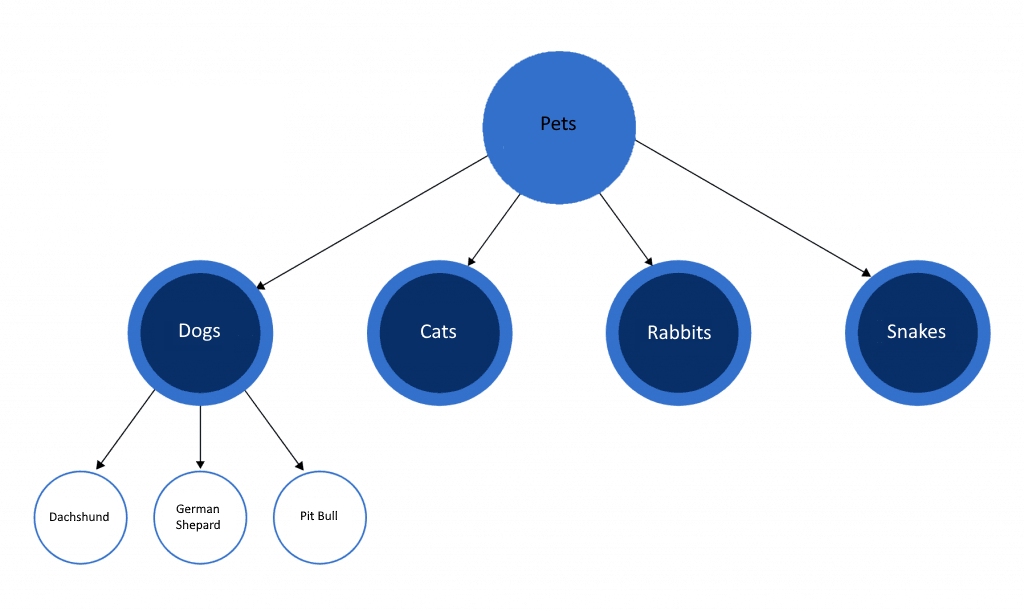The lead post in this series is Mastering Topical Authority: A Comprehensive Guide to Boost Your SEO.
Topical authority and domain authority not the same, but they’re related. Domain authority is the older concept while topical authority is newer.
The idea of topical authority has not replaced the idea of domain authority. They now co-exist.
Jump ahead to:
The concept of domain authority
Domain authority is an idea created by Moz in the early days of SEO as a (some say rough) measure of how authoritative a specific website (or domain) was for whatever it is that it talks about.
It’s a numerical score between 1 and 100 and is considered to be a predictor of how likely pages of the website are to appear in Search Engine Result Pages (SERPs).
The main strategy people have used to increase the domain authority of their website was/is to build backlinks to their site from other, preferably high DA, websites.
Domain authority is NOT a ranking factor used by Google.
The concept of topical authority
Topical authority is considered to be more narrow, and is an idea (not a numerical score) of the expertise and relevance of a website for specific topics.
It was born as an offshoot of Google EAT, which is now EEAT.
There is some discussion as to whether topical authority is an attribute of writers, websites, brands, or possibly all three.
Neither topical authority nor EEAT are direct ranking factors, but both are considered to be a critical baseline, floor, or minimum acceptable standard for getting websites to rank.
Google promotes the ideas of EEAT and topical authority endlessly, but does not reveal how they’re used when putting together SERPs.
Similarities and differences
The similarities are they are both metrics relate to visibility, ranking, trust, and credibility.
Differences are a matter of focus, scope, and the way they’re used.
Domain authority “belongs” to an entire website, whereas topical authority focuses in on the expertise demonstrated for specific subjects.
A website can only ever have one domain authority score, but can be seen as having topical authority for multiple topics.
While both matter, they matter in different ways.
Domain authority is broader and encompasses the entire site, whereas topical authority encompasses less than the full site, and for some very large site, far less.
Topical authority has a stronger focus on expertise relative to specific topics.
Both domain authority and topical authority require external validation.
Earning links is important for both concepts, but the topical authority crowd is more concerned with the topical relevance of the links, whereas the domain authority crowd is more concerned with the domain authority of the site the link comes from.
How topical authority affects how you do SEO
A shift in focus from domain authority to topical authority has a significant impact on how we do SEO.
The biggest changes seem to be:
Topic clusters
Topic clusters are just a bunch (or cluster) of articles or posts on various aspects or nuances of an overall topic. And the posts within the cluster link internally to each other.
The internal linking helps readers more easily move from idea to idea and also signals the search engine software that the posts are topically related.
Author credentials
While it doesn’t appear that topical authority is an attempt by Google to bring back Google Authorship, it’s commonly understood, right or wrong, that author identities and bios matter.
SEO folks pursuing topical authority ensure every author has an appropriate bio, and sets up the website so that it appears at the bottom of every post they write.
Backlink quality over quantity
Perhaps the greatest effect on how we do SEO is relative to earning links. In a world of topical authority, “good links” and “bad links” are easy to distinguish.
If a link comes from the Main Content of a webpage (the actual post or article separate from the HTML of the header, the footer, the sidebar, etc) and is topically relevant, it’s a good link.
If the link is at all topically relevant, it’s still good, but maybe could be better.
If the link has zero topical relevance, it looks spammy and is bad.
In a world of topical authority, the quality of the links to your site matter more than the quantity.
Community engagement
And of course, you’re writing for people.
Where do they hang out online? How do you join them? How do you interact with them?
Community engagement is no longer seemingly random social media posts, but is actual engagement in online communities.
Can you measure topical authority?
Sort of. Loosely.
There is no topical authority numerical score as there is for domain authority, so measuring topical authority is much more nuanced.
It includes, content depth, content quality, the backlink profile, site traffic and user engagement, brand mentions (on social media and other websites), and general audience perceptions.
Measuring topical authority is more like measuring “brand equity” than it is like measuring domain authority.
In closing
Shifting your perspective from domain authority to include topical authority does shift the way we do SEO.
But like it or not Google makes the rules of search, they have a habit of announcing where they’re going and updating their algorithm to go there later, and in this case they’re now doing both.
For those of us in pursuit of rankings, traffic, etc, we “just” need to do things the way Google is telling us.
